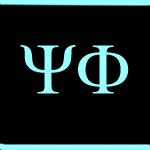C Block was the odd-man out today, as they worked through the ideas of electric potential energy, electric potential and potential difference. Make sure you are very clear about each definition and the associated formulas. Between this chapter and last chapter, formulas look very similar and it is easy to get them mixed up on a test. Tomorrow, we'll extend the discussion of potential difference to the concept of batteries and power supplies - what role does a battery have in an electric circuit? Stay tuned and find out.
B Block finished up their capacitor lab, with write-ups due on Friday. Capacitors store charge and discharge on command, which is why they are great for turn signals and computer keys. Think about the RC relationship and what that means for capacitors charging and discharging and why linking two capacitors in series altered the RC value for the circuit. Tomorrow, we'll jump back into our discussion of potential difference and look at that battery potion of your circuit in more detail.
E Block took on the topic of capacitors and you'll work on your capacitor lab on the Monday we return from break. Capacitors act as storehouses of charge and the associated potential energy. When you need work done, you release the charge. We discussed factors that affect an object's capacitance (size, shape, plate spacing, permittivity of materials) and how to calculate various properties of capacitors. We'll go over these problems tomorrow before starting a general review of the material for your next exam. Friday, we'll start your capacitor lab, which we'll conclude when we return from break.
F Block linked yesterday's work on potential difference to the concept of a battery or power supply. Batters offer points of high and low electric potential that create the potential difference to stimulate charge flow. We looked at different types of batteries and clarified what voltage means for a battery and took a little time to preview the ideas of direct and alternating current. Tomorrow, we'll hit the idea of capacitors and Friday's lab will use ideas about capacitors and potential difference to look at how capacitors function in circuits.
skip to main |
skip to sidebar

Code Talker by Chester Nez



Ready Player One by Ernest Cline

Invasion of the Body Snatchers
Swiffer
Cyber.Vision
- Hitchhikers Guide to the Galaxy
- Battlestar Gallactica
- Quantum Leap
- Star Trek
- Stargate Atlantis
- Firefly
- Eureka
- Heroes
- MacGyver
- Highlander
- Fringe
- Lost in Space
- Cosmos
- The Twilight Zone
- The Time Tunnel
- Land of the Giants
- Voyage to the Bottom of the Sea
- ALF
- Total Recall 2070
- Pokemon
- Night Gallery
- The Invisible Man
- The Dresden Files
- The Outer Limits
- Buffy the Vampire Slayer
- The Incredible Hulk
- NOVA
- SciFi Wire
Book.Read
Code Talker by Chester Nez
Links.Zone
- Introductory Physics MCAS Review
- The Physics Classroom
- Khan Academy
- NASA
- Technology Review
- DVICE
- LOCUS Online
- Hugo Awards
- Nebula Awards
- Saturn Awards
- SF Signal
- SciFi Lists
- New England Science Fiction Association
- Evil Mad Scientist Laboratories
- SciFi Channel
- Star Trek
- Star Wars
- Stargate
- Web Sudoku
- SET Daily Puzzle
- Quiddler Daily Puzzle
Advice

Pod.Casts
The.Archive
NASA.Img
Engadget
APS.Org
Gizmodo
Physics.Today
Physics.World
Get.Wired

Quality.Read
Ready Player One by Ernest Cline
Screen.Time
Invasion of the Body Snatchers
TechCrunch
CNET.Buzz
PCM.News
NewSci.Tech
SciAm.Physics
NASA.News
NewSci.Space
And.Furthermore
no matter where you go...there you are...

